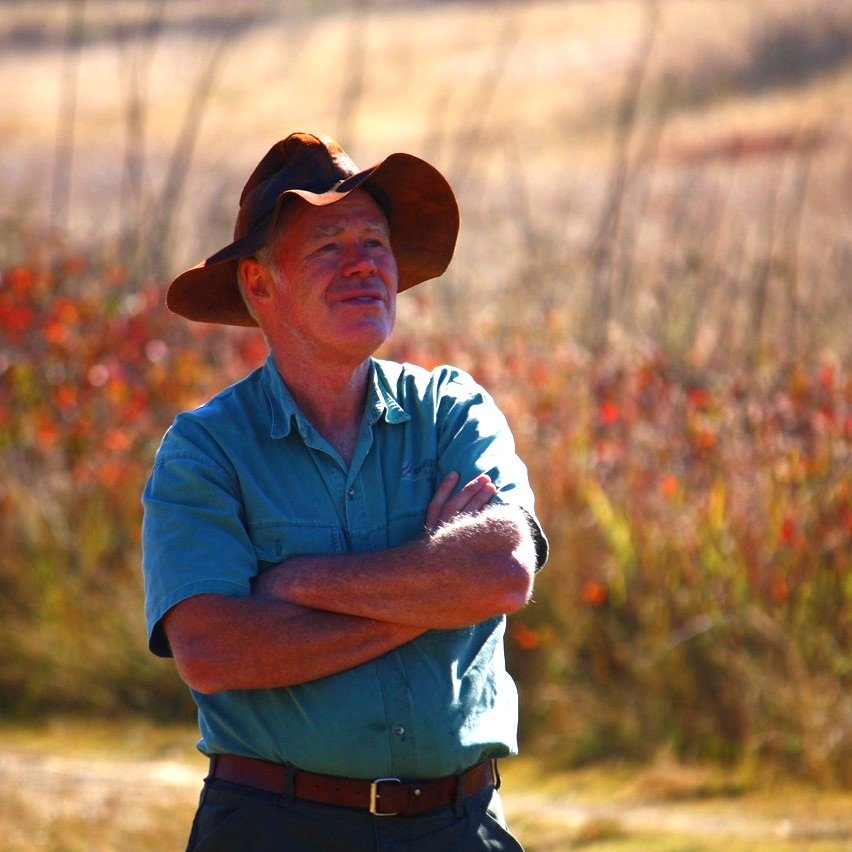- Homepage
- Stunting of children
- Stunting Story Recommends Local Mills
Stunting story recommends local mills
Part IV of our stunting story recommends local mills for freshly-ground grains; true 100% wholemeal wheat and maize. Once cracked the oils begin to spoil. The shelf life is probably at best about a week but can be extended by freezing.
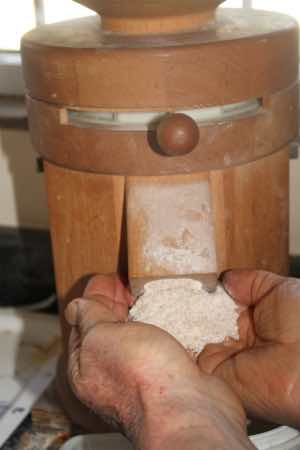 True wholemeal wheat
True wholemeal wheatReading for meaning
A recent international study found that a staggering 81% of South African 10 year-olds cannot read for meaning. Educators are blamed but clearly a stunted brain cannot be easily taught.
Can stunting in South Africa be reversed? Can we think innovatively and build capable school feeding schemes? Can we undo the great harm done by public administrators in both education and health who lack understanding about these fundamental issues and have failed to take the initiative?
Are their brains also stunted is a legitimate question? This is not a new problem after all.
The steepest challenge
“Writing and rewriting is an attempt to communicate not just a truth, but the ecstasy of a truth. It is not enough for me to convince the reader of my argument; I want them to feel the same private joy that I feel alone.”
Ta-Nehisi Coates
The steepest challenge I would suggest is the general acceptance that refined maizemeal, white rice and cake flour are all good foods; that which adults eat themselves and do not hesitate to give to their children. From the Ministry of Health to that of Education there is not a word on the probable consequences of feeding these ultra-processed meals to our kids.
And because these extracted nutrients also give food its taste, excessive amounts of sugar and salt must be added; or artificial chemical flavouring.
It comes as no surprise thus that South Africa has become one of the most unhealthy countries in the world; diabetes, cancer and cardiovascular conditions abound. In the main, these are the diseases of poor nutrition.
"Measures other than growth and inequality reduction should be introduced or expanded to facilitate poverty mitigation."
- Grace Grant
We must have people on board who are willing to use strong words that have meaning. And the food industry in general needs enemies who will be both their and our saviours; superficiality will get us nowhere.
South Africa desperately requires those who are willing to ask questions that may not be PC and that we are not ready to face; but will serve to guide and lead not only our children to a healthier future but we adults too.
The material expressed on this page is gleaned from the nutritional and environmental literature; it is clearly referenced. A plain distinction is made between the author's opinion and that which is scientifically proven. When in doubt consult your health professional.
To suggest a correction or clarification, write to Dr Bernard Preston here. Contact.
Met a farmer who feeds his animals super-refined maizemeal?
Has anyone ever met a agriculturist who will feed his cattle refined maizemeal? Do you know a chicken man who supplies his birds with polished rice? Is there even one pig farmer who would put cake flour in their troughs?
The
discovery of the first vitamin arose from an observant doctor who noted
that the chickens belonging to his patients dying from a mysterious disease were eating the leftover hyper-refined grains of their owners, were also sick[1]; more specifically in this instance, polished rice.
Would you give your dog white bread for its main meal? None of these should be classified as food; and they should all, like sugar, attract a sin-tax. To convince civil society at large will take a seismic event as massive as a meteor shifting the axis of the Earth.
It’s time to ask why we are feeding these pseudo foods that have been hollowed out to our children. Until society is willing to discuss this, all is lost. The refiners of wheat, maize and rice will continue to gobble up both Little Red Riding Hood and her grandmother; and the Three Pigs. We will continue to make sweet treats freely available to our kids.
Stunting story recommends local mills
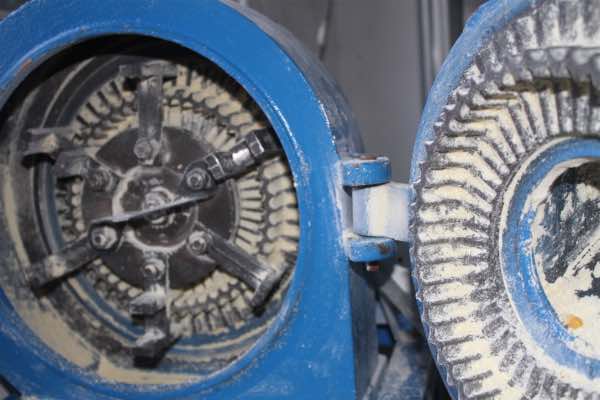 A modern mill that grinds maize but extracts none of the bran or germ.
A modern mill that grinds maize but extracts none of the bran or germ.Everyone in Pietermaritzburg has heard of Mason’s Mill. When the early settlers arrived, one of the first things they did was to install a stone-grinder.
Today it’s far easier with electrically-powered grinders. Every single village, town and city should have a local mill that can provide fresh 100% whole grain for those who desire it; and for school feeding schemes.
Farmers sell their yellow maize for less than R4/kg. The cheapest highly-refined super cornmeal starts at R500 for 50 kilogrammes; the price rises steadily for smaller amounts.
A small backyard miller could provide the very best wholegrain, freshly-ground maizemeal and wheat flour cheaper than supermarkets charge for pseudo foods from which the best parts have been extracted.
Is the nutrition of our pigs really more important than that of our children?
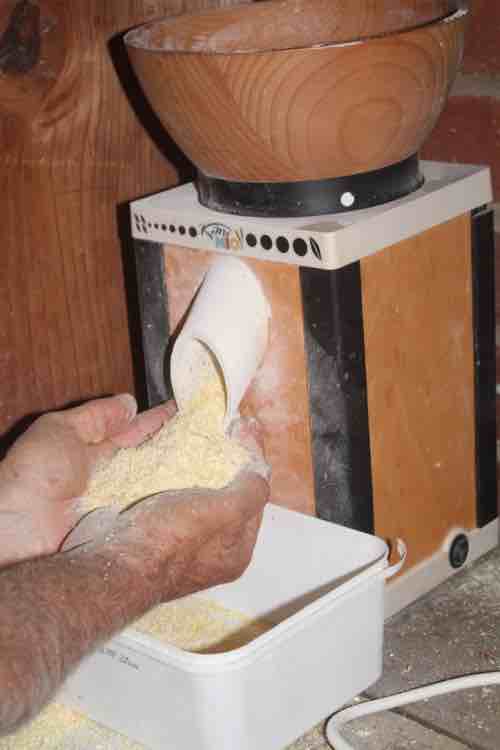
Returning to the science
A second challenge is that the Nutrition Society of South Africa has clearly not been asked to give guidance on the food being provided by the National School Food Programme; or it's not been heeded.
Until we return to the science behind these deep problems I have zero confidence that we can move forwards on the question of stunting; and without intelligent, strong workers South Africa will continue its ominous slide towards becoming at best a mediocre or at worst a failed state.
"Enriched flour has been stripped of most of its vitamins, minerals and fibre; a few synthetic nutrients are added back."
- Prof Ocean Robbins
There are not many more misleading terms than "enriched" flour.
Growing food at home
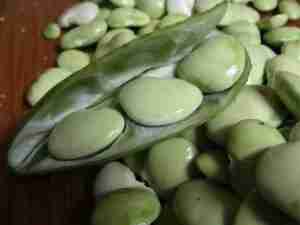
A third great challenge is that despite extremely high unemployment, with one in seven families experiencing acute hunger, research indicates that less than twenty percent of homes are growing any food in their own gardens; not even a few rows of mealies.
Children are already
permanently stunted by 5-years of age; that's before they even get to
school. Feeding schemes should be thinking of pregnant mothers and
toddlers; and parents who have time on their hands need seeds and
instruction on gardening.
A sustainable future in South Africa means that people everywhere, rich and poor, hungry and well-fed need to start growing their own food at home; just as they should be harvesting rainwater and sunshine on site.
Without a vision, the people perish
It’s abundantly clear that neither the government, nor society in general have the brainchild of how to create a well-fed, healthy nation. And without a vision, the people perish. We have to do this for ourselves.
Just as the state is unable to provide South Africans with reliable electricity and clean water, neither is it able to give the lead concerning the provision of food that will prevent the stunting of our children. It’s up to civil society to come up with a solution.
Part V will consider various scenarios in support of wellness. One small example is that food rich in beta-carotene, the precursor of vitamin A, drastically reduces the vulnerability of children to blindness, measles and diabetes.
That's why we choose yellow maizemeal[3].
Stunting story recommends local mills
Stunting story recommends local mills for freshly-ground grains.
Part V will consider various scenarios as to how harmony and balance can be restored for future generations of children.
Let us not forget that whilst physical stunting of children is easily spotted, the mental decline associated with a lack of nutrients such as folate is subtle and not readily detected.
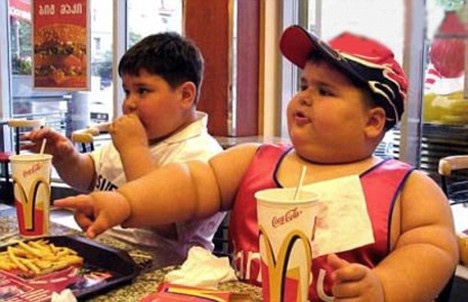 Could these children be mentally stunted due to a lack of folate?
Could these children be mentally stunted due to a lack of folate?- The stunting story has three elements
- Stunting story and severe food insecurity
- Stunting story weighs hunger versus malnutrition
- Stunting story recommends local mills for freshly-ground grains
- Stunting story suggests scenarios to restore harmony and balance
- Stunting story ponders what government could do
When browsing use right click and "Open Link in New Tab" or you may get a bad gateway signal.
Newsletter
Our newsletter is entitled "create a cyan zone" at your home, preserving both yourself and Mother Earth for future generations; and the family too, of course. We promise not to spam you with daily emails promoting various products. You may get an occasional nudge to buy one of my books.
Here are the back issues.
- Lifestyle and ideal body weight
- What are ultra-processed foods?
- Investing in long-term health
- Diseases from plastic exposure
- Intensive lifestyle management for obesity has limited value
- A world largely devoid of Parkinson's Disease
- The impact of friendly bacteria in the tum on the prevention of cancer
- There's a hole in the bucket
- Everyone is talking about weight loss drugs
- Pull the sweet tooth
- If you suffer from heartburn plant a susu
- Refined maize meal and stunting
- Should agriculture and industry get priority for water and electricity?
- Nature is calling
- Mill your own flour
- Bake your own sourdough bread
- Microplastics from our water
- Alternative types of water storage
- Wear your clothes out
- Comfort foods
- Create a bee-friendly environment
- Go to bed slightly hungry
- Keep bees
- Blue zone folk are religious
- Reduce plastic waste
- Family is important
- What can go in compost?
- Grow broad beans for longevity
- Harvest and store sunshine
- Blue zone exercise
- Harvest and store your rainwater
- Create a cyan zone at your home
Did you find this page interesting? How about forwarding it to a friendly book or food junkie? Better still, a social media tick would help.
- Homepage
- Stunting of children
- Stunting Story Recommends Local Mills
Address:
56 Groenekloof Rd,
Hilton, KZN
South Africa
Website:
https://www.bernard-preston.com
